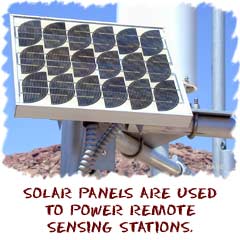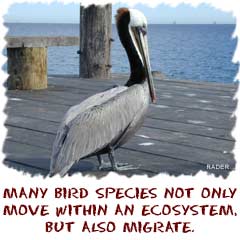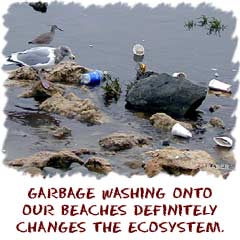Ecology - The Study of Ecosystems
 Ecology is a science all by itself but it is also a branch of the larger sciences of biology and geography. Ecology is the study of organisms and the environments they live in. As an ecologist, you don't just study a fish. You study the fish, water, sunlight, food supply, things that eat the fish, and every possible factor that might affect the fish in its lifetime. Ecologists study specific areas of biological activity called ecosystems.
Ecology is a science all by itself but it is also a branch of the larger sciences of biology and geography. Ecology is the study of organisms and the environments they live in. As an ecologist, you don't just study a fish. You study the fish, water, sunlight, food supply, things that eat the fish, and every possible factor that might affect the fish in its lifetime. Ecologists study specific areas of biological activity called ecosystems.
The details and complexities of ecosystems make ecology interesting. Ecologists first study all of the interactions inside of the ecosystem. They then apply the idea that no ecosystem (local environment) exists alone. Ecosystems interact with each other. That puddle is interacting with the vacant lot. The vacant lot interacts with the ecosystem of the city block, then the city, county, state, country, and continent. You get the idea.

You Should be Moving
Nothing just sits around in nature. The locations studied in ecology are living things. They are constantly changing and moving. Not only do the animals move, but the things they need to survive move too. Energy moves. Nutrients and chemicals move. Everything either flows or cycles through an ecosystem, and it happens all the time. Twenty-four hours a day, bacteria work to get nitrogen ready for the plants. Plants grow and make food for animals. The Sun shines on the plants during the day and warms up the area. You need to remember that things are always happening. Even if you don't see it moving, it is.Outside Factors
Do you think you control the environment around you? You know that you can't control the weather or the tides. However, you do have a huge influence over your local ecosystem and the world. The term biosphere is used to describe all of the ecosystems found across the world. They are all there, from the bottom of the ocean, to the Antarctic mountains. There are large factors that influence all of the ecosystems. The easy factors to remember areclimates, seasons, and natural disasters.
Humans - The Largest Factor?
You affect the biosphere every day. Think about the people who still use coal to power generators in China. Did you know that they use so much coal that it goes into the atmosphere and floats around the entire world? It's like a huge band of pollution circling the Earth. Those people definitely affect the biosphere.What about the farmer who uses a bunch of fertilizers? One person is just fertilizing his fields. All of those nutrients go into the soil, are washed away into the rivers, and finally make it to the ocean. Every step of that process changes the local ecosystem. When the fertilizer gets to the ocean, even more things may change. Let's say a huge number of bacteria grow on the extra nutrients. Those bacteria can make the fish sick and die. Eventually the bigger fish die because there is no food. Soon there are no fish to catch and over fishing happens somewhere else in the world. Do you see how one person can affect the entire planet?
Or search the sites for a specific topic.
- Overview
- Ecology
- Ecosystems
- Food Chains
- Populations
- Land Biomes
- Erosion
- Deep Erosion
- Weathering
- Soils
- Soil Formation
- Natural Resources
- Energy Resources
- Recycling
- More Topics

The Ocean’s Green Machines (NASA/GSFC Video)

Useful Reference Materials
Encyclopedia.com:http://www.encyclopedia.com/topic/ecology.aspx
Wikipedia:
http://en.wikipedia.org/wiki/Ecology
Encyclopædia Britannica:
http://www.britannica.com/EBchecked/topic/178273/ecology





